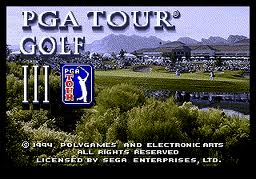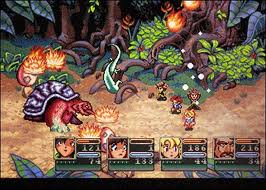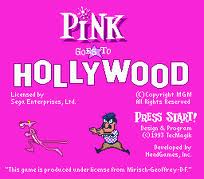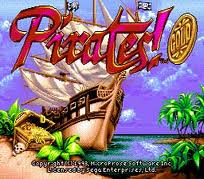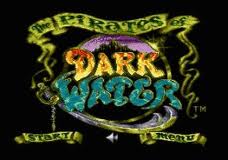Menu
PGA Tour Golf 2
PGA Tour Golf 3
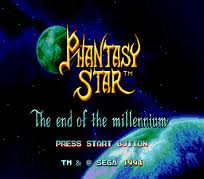
Phantasy Star - The ...
Phantasy Star (ファンタシースター Fantashī Sutā?) is a series of console role-playing video games and other supplementary media cRead more
Phantasy Star (ファンタシースター Fantashī Sutā?) is a series of console role-playing video games and other supplementary media created by Sega. The series debuted in 1987 on the Sega Master System with Phantasy Star, and continues into the present with Phantasy Star Online 2 and other extensions of the Phantasy Star Online sub-series. Each of the games in the series features a science fantasy setting featuring a cross-genre combination of magic and technology.The first four games in the series are set in or are related to the planetary system of Algol, and are single-player RPGs. Later titles bearing the Phantasy Star name are for the most part massively multiplayer online games. Phantasy Star Online and Phantasy Star Universe are set in other galaxies; they share certain minor canonical links with the original series, mostly in the recurrence of common themes and antagonists.
Ssega
2015-02-20 23:29:19
34.3k










Phantasy Star - The End ...
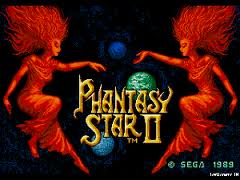
Phantasy Star II
Phantasy Star II, released in Japan as Phantasy Star II: Kaerazaru Toki no Owari ni (ファンタシースターII 還らざる時の終わりに?), is a consRead more
Phantasy Star II, released in Japan as Phantasy Star II: Kaerazaru Toki no Owari ni (ファンタシースターII 還らざる時の終わりに?), is a console role-playing video game developed by Sega AM7 for the Mega Drive/Genesis that was released in Japan in 1989 and Europe and North American in 1990. It was later ported to a variety of different platforms. Its remake, Phantasy Star Generation 2, was released for the PlayStation 2 in 2005.
It is the second installment in Sega's acclaimed Phantasy Star series and serves as a sequel to the original Phantasy Star for the Master System. Phantasy Star II is set 1,000 years after the events of its predecessor and follows the journey of a government agent named Rolf and his friends, who are on a mission to find out why the protector of the planet Mota, Mother Brain, has started malfunctioning.
Phantasy Star II was the first 16-bit role-playing game released in the west (it was released months before the original 8-bit Final Fantasy for the NES) and it was the first video game to use a 6 mega-bit cartridge. As a result Phantasy Star II was far bigger than any game before it and the title became the new benchmark for the genre. Many of the title's game play elements, such as its sci-fi setting, random battles and high difficulty level, were brought across from its predecessor, but Phantasy Star II innovated thanks to its sprawling environments, graphical improvements and its strong, character driven story.
Since its release Phantasy Star II has been the subject of universal acclaim from critics, fans and RPG enthusiasts alike. The game is generally viewed as ahead of its time, mainly thanks to its narrative and its dealings with serious subject matters, something that other console role-playing games never tackled until years later. The title is widely considered to be one of the greatest and most influential role-playing video games of all time.
Ssega
2015-02-20 23:29:19
203.3k










Phantasy Star II
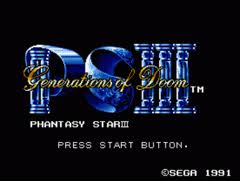
Phantasy Star III - ...
Phantasy Star III: Generations of Doom, released in Japan as Toki no Keishōsha: Phantasy Star III (時の継承者 ファンタシースターIII?),Read more
Phantasy Star III: Generations of Doom, released in Japan as Toki no Keishōsha: Phantasy Star III (時の継承者 ファンタシースターIII?), is a traditional console role-playing game that was released for the Sega Mega Drive (Sega Genesis) in Japan in April 1990 and in western countries in 1991. It was also released in three different compilations known as The Phantasy Star Collection for the Sega Saturn and Game Boy Advance, and The Sega Genesis Collection for the PlayStation 2 and PSP, and later re-released on the Virtual Console. It was featured in Sonic's Ultimate Genesis Collection for the Xbox 360 and PlayStation 3.Phantasy Star III is a sequel to the previous game in the series, Phantasy Star II, although the connections to other games in the Phantasy Star series are not immediately evident. Gameplay is similar to the games before it in the series, with combat still being turn-based and battles randomly occurring. Players must explore both overworld maps and dungeons in order to progress through the game.
Ssega
2015-02-20 23:29:20
122.6k










Phantasy Star III - Gene...
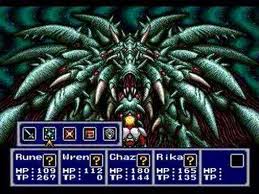
Phantasy Star IV: Th...
Phantasy Star IV (sometimes PS4), released in Japan as Phantasy Star: The End of the Millennium (ファンタシースター 千年紀の終りに?), isRead more
Phantasy Star IV (sometimes PS4), released in Japan as Phantasy Star: The End of the Millennium (ファンタシースター 千年紀の終りに?), is a role-playing video game released for the Mega Drive in Japan in 1993 and Europe and North America in 1995. It is the fourth and final game in the original Phantasy Star series, concluding the story of the Algol Star System. The game was also made available on the Wii Virtual Console in Japan on June 24, 2008, in the PAL regions on November 14, 2008, and in North America on December 22, 2008, for the price of 800 Wii Points.[1] Phantasy Star IV is also part of the Sega Genesis Collection on the PlayStation 2 and PlayStation Portable and on Sonic's Ultimate Genesis Collection for Xbox 360 and PlayStation 3.Phantasy Star IV kept many of the gameplay elements of the previous game, including turn-based battles, overhead exploration, and magic spells. Phantasy Star IV met with mostly mixed reviews upon its release, but has been subject to very positive critical retrospectives.
Ssega
2015-02-20 23:29:20
346.5k










Phantasy Star IV: The En...
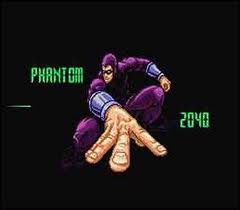
Phantom 2040
Phantom 2040 is a French-American animated science fiction television series loosely based on the comic strip hero The PRead more
Phantom 2040 is a French-American animated science fiction television series loosely based on the comic strip hero The Phantom, created by Lee Falk. The central character of the series is said to be the 24th Phantom.
The show was developed for television by executive producer David J Corbett and executive story editors Judith and Garfield Reeves-Stevens. In addition to story-editing both seasons, the Reeves-Stevens devised the show's writers' bible, scripted the two-part pilot (Generation Unto Generation) and personally scripted most of the show's key episodes.
The unusual character designs were the distinctive work of Peter Chung, creator of Æon Flux.
The show debuted in 1994 to rave reviews, though it survived only 35 episodes before it was relegated to weekend repeats in 1996. Along with action sequences, stories focused on intelligent plotting and character development, winning the series praise for its subtle teaching of such values as individuality, freedom and the volatility of humanity.
Along with Andrea Romano's equally pioneering work on Batman: The Animated Series, Stuart M. Rosen's voice direction on Phantom 2040 had a lasting impact on animated adventure television. Romano and Rosen cast accomplished dramatic actors and introduced a new level of maturity and complexity to their show's vocal performances that set the standard for all TV animation that followed.
Phantom 2040's unique voice cast included Scott Valentine, Margot Kidder, Ron Perlman, Leah Remini, J.D. Hall, Alan Oppenheimer, Richard Lynch and Jeff Bennett - while Mark Hamill, Debbie Harry, Rob Paulsen and Paul Williams had recurring roles.
The show inspired a four-part tie-in comic book series illustrated by legendary Spider-Man co-creator Steve Ditko.
Ssega
2015-02-20 23:29:20
95.2k














